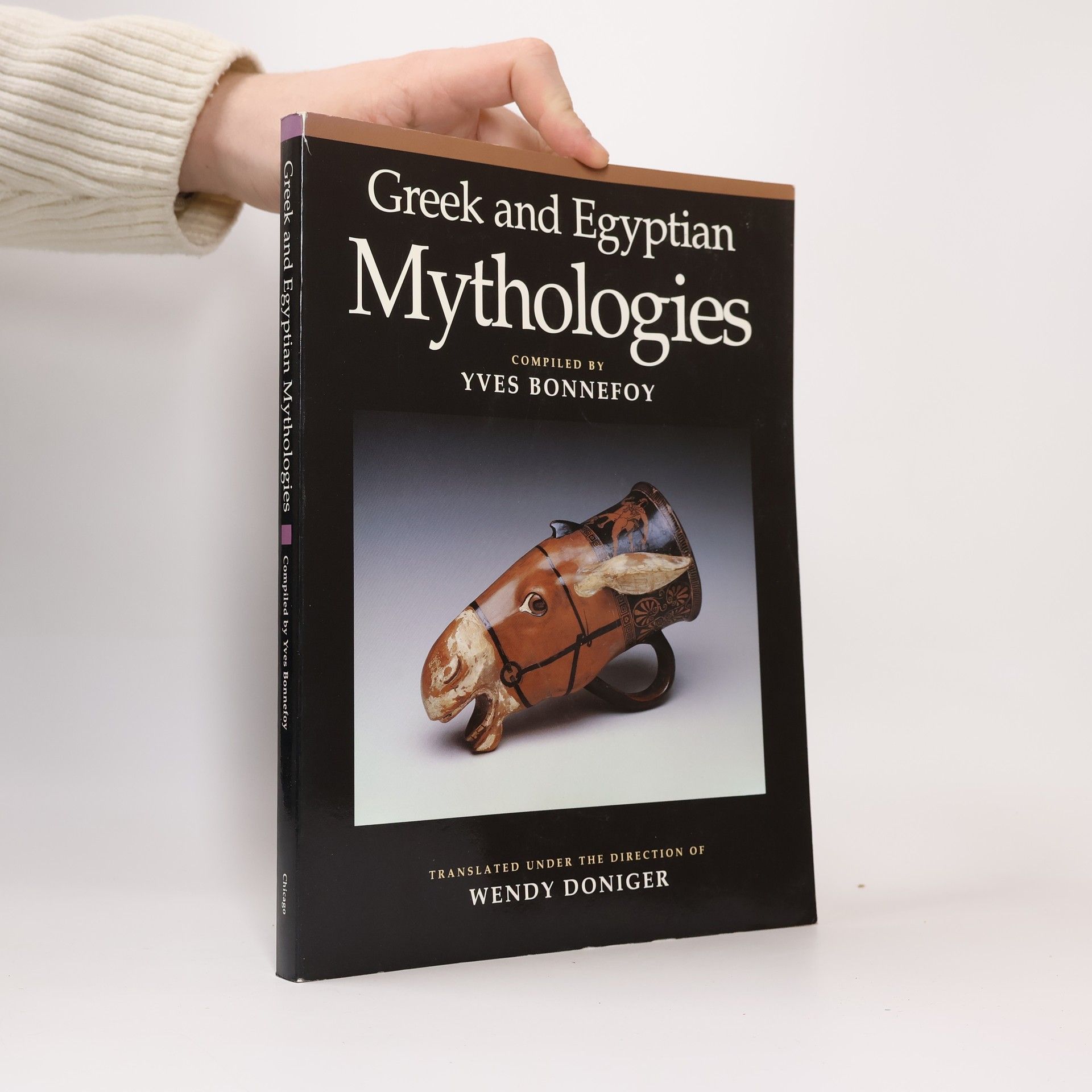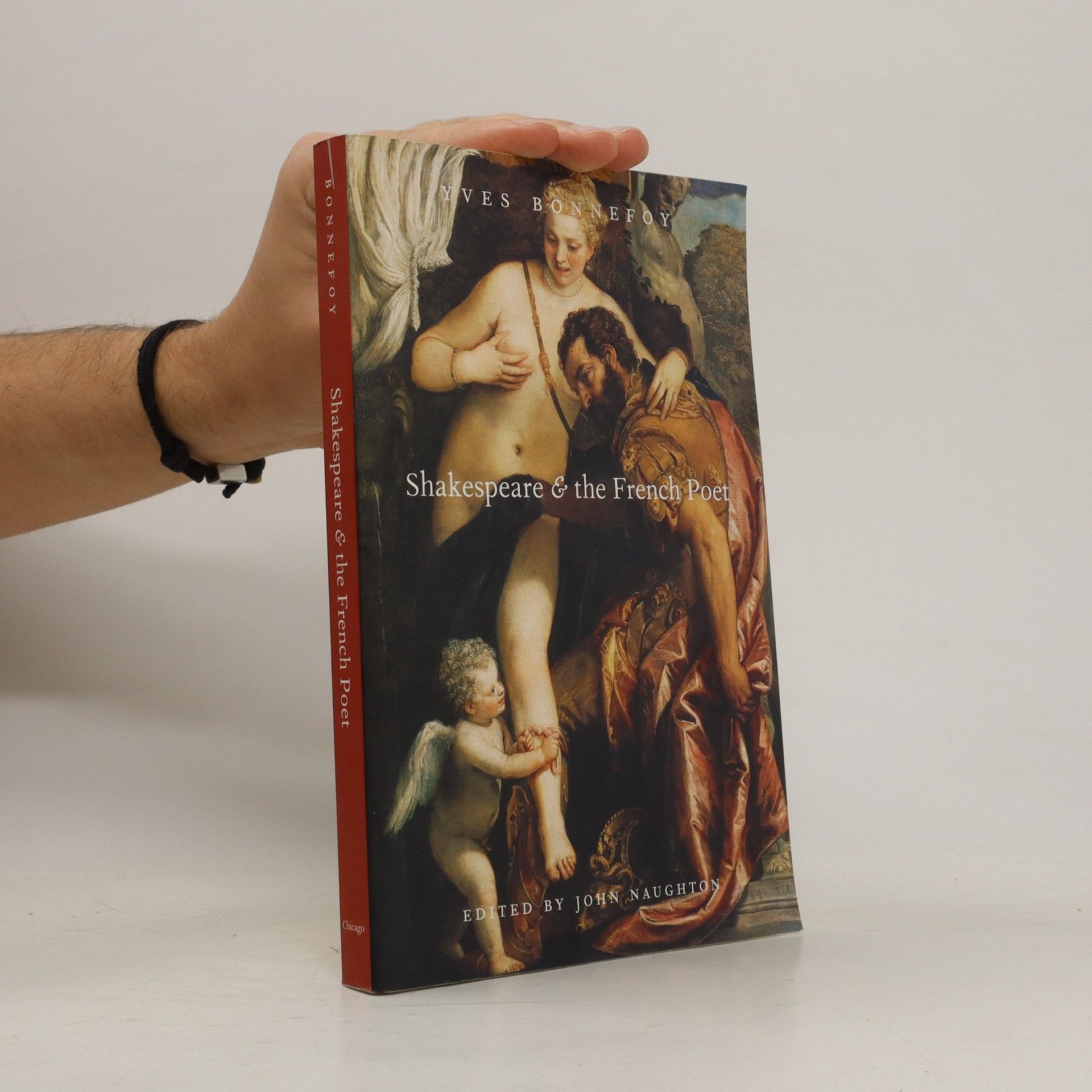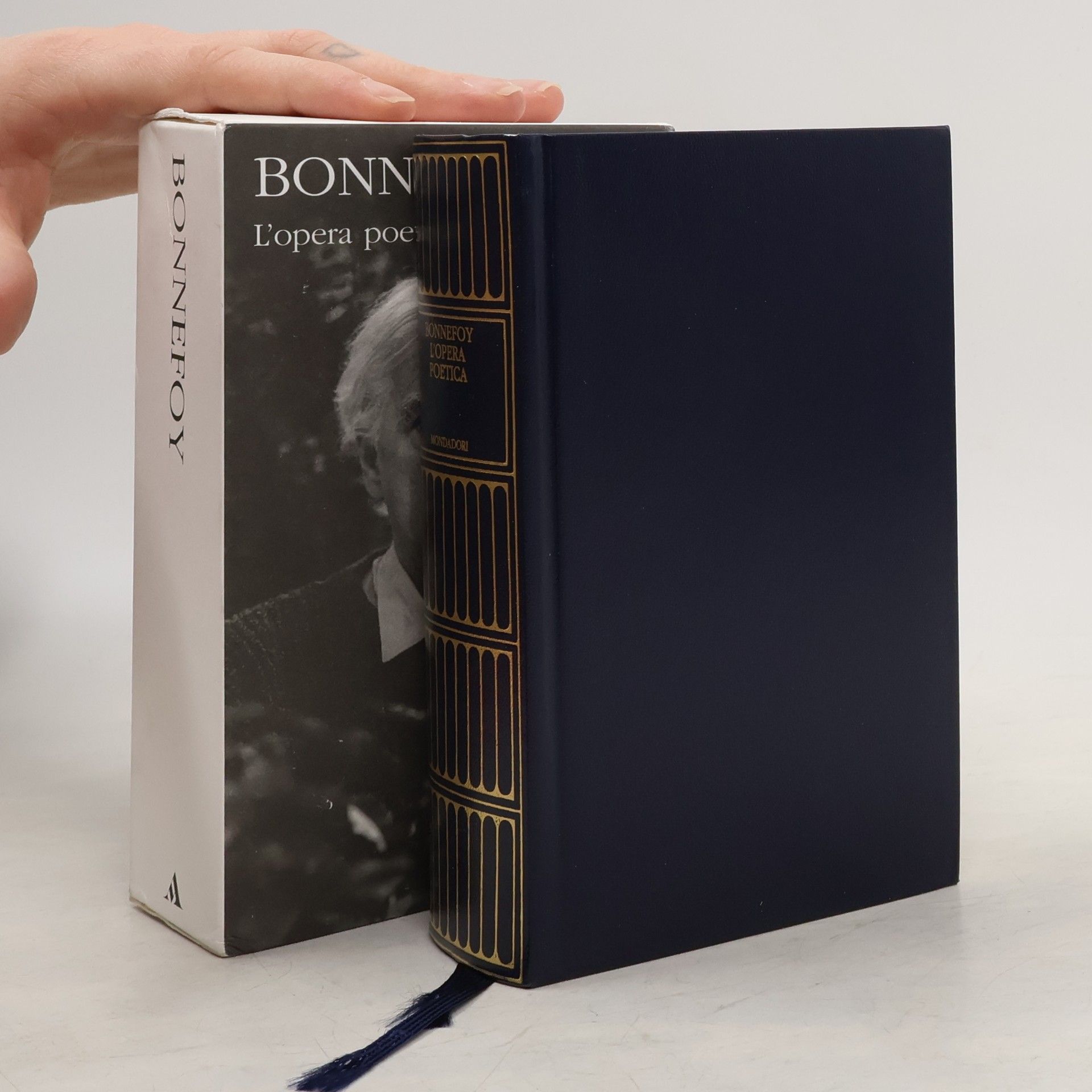I Meridiani: L'opera poetica. Testo francese a fronte
- 1697pagine
- 60 ore di lettura
Yves Bonnefoy è stato un poeta e saggista francese la cui opera riveste una notevole importanza nella letteratura francese del dopoguerra. I suoi scritti, caratterizzati da una fusione di poetica e teoria, esplorano il significato della parola parlata e scritta. Bonnefoy si dedicò anche a traduzioni, in particolare di Shakespeare, e pubblicò diversi lavori sull'arte e la storia dell'arte.







Following on from 2017's celebrated Poems, this is a wide-ranging selection of Bonnefoy's essays on literature, art and life.
An inspiring book of poetry and prose by the celebrated author Yves Bonnefoy. Heralded as one of France's greatest poets, Yves Bonnefoy has been dazzling readers since the publication of his first book in 1953. He remains influential and relevant, continuing to compose groundbreaking new work. Though Bonnefoy recently celebrated his ninetieth birthday, many are calling these past two decades his most impressive yet. His latest book of poetry and prose, The Digamma, fits wonderfully into his impressive oeuvre, offering his signature style of simple but powerful language with fresh new grace. A key passage of the title piece of the book depicts the figures of Nicolas Poussin's The Shepherds of Arcadia, which Bonnefoy has identified as crucial to the artist's evolution. The sustained reference to Poussin's iconography serves to ground the text in the lost civilizations of antiquity. Subtly, it brings out the underlying theme of the entire collection--in the ambivalent world we inhabit, being and non-being is fundamentally one. As a leading translator of Shakespeare in France, Bonnefoy's fascination with the master playwright is displayed in "God in Hamlet" and "For a Staging of Othello," two poems in prose that belong to an ongoing series of meditations on the plays. The collection also includes haunting reflections on children, nature, the origins of art, and vanished cultures.
Praised by Paul Auster as “one of the rare poets in the history of literature to have sustained the highest level of artistic excellence throughout an entire lifetime,” Yves Bonnefoy is widely considered the foremost French poet of his generation. Proving that his prose is just as lyrical, Rue Traversière, written in 1977, is one of his most harmonious works. Each of the fifteen discrete or linked texts, whose lengths range from brief notations to long, intense, self-questioning pages, is a work of art in its own right: brief and richly suggestive as haiku, or long and intricately wrought in syntax and thought; and all are as rewarding in their sounds and rhythms, and their lightning flashes of insight, as any sonnet. “I can write all I like; I am also the person who looks at the map of the city of his childhood, and doesn’t understand,” says the section that gives the book its title, as he revisits childhood cityscapes and explores the tricks memory plays on us. A mixture of genres—the prose poem, the personal essay, quasi-philosophical reflections on time, memory, and art—this is a book of both epigrammatic concision and dreamlike narratives that meander with the poet’s thought as he struggles to understand and express some of the undercurrents of human life. The book’s layered texts echo and elaborate on one another, as well as on aspects of Bonnefoy’s own poetics and thought.
A meditation on the major plays of Shakespeare and the thorny art of literary translation, Shakespeare and the French Poet contains twelve essays from France's most esteemed critic and preeminent living poet, Yves Bonnefoy. Offering observations on Shakespeare's response to the spiritual crisis of his era as well as compelling insights on the practical and theoretical challenges of verse in translation, Bonnefoy delivers thoughtful, evocative essays penned in his characteristically powerful prose.Translated specifically for an American readership, Shakespeare and the French Poet also features a new interview with Bonnefoy. For Shakespeare scholars, Bonnefoy enthusiasts, and students of literary translation, Shakespeare and the French Poet is a celebration of the global language of poetry and the art of "making someone else's voice live again in one's own."
The seventy-two entries in this volume explore, among other topics, the history, geography, and religion of Greece, Plato's mythology and philosophy, the powers of marriage in Greece, heroes and gods of war in the Greek epic, and origins of mankind in Greek myths. Ancient Egyptian cosmology, anthropology, rituals, and religion—closely linked to Greek mythology—are also discussed."In a world that remains governed by powerful myths, we must deepen our understanding of ourselves and others by considering more carefully the ways in which the mythological systems to which we cling and social institutions and movements to which we are committed nourish each other. Yves Bonnefoy's Mythologies not only summarizes the progress that has already been made toward this end, but also lays the foundation for the difficult work that lies ahead."—Mark C. Taylor, New York Times Book Review"The almost 100 contributors combine, with characteristic precision and élan, the arts of science and poetry, of analysis and translation. The result is a treasury of information, brilliant guesswork, witty asides, and revealing digressions. This is a work of genuine and enduring excitement."—Thomas D'Evelyn, Christian cience Monitor
These 130 articles explore mythologies in societies from India to Japan. Among the many topics are Buddhist and Hindu symbolic systems, myth in pre-Islamic Iran, Indonesian rites of passage, Chinese cosmology and demons, and Japanese conceptions of the afterlife and the "vital spirit." The mythological traditions of Turkey, Korea, Tibet, and Mongolia are also included."The almost 100 contributors combine, with characteristic precision and élan, the arts of science and poetry, of analysis and translation. The result is a treasury of information, brilliant guesswork, witty asides, and revealing digressions. This is a work of genuine and enduring excitement."—Thomas D'Evelyn, Christian Science Monitor
Focusing on childhood memories and familial relationships, the book presents Yves Bonnefoy's poignant reflections on his father's silence and the melancholy of his parents' marriage. Written as a commemoration shortly before his death, it intertwines fragments from 1964 with his experiences as a solitary boy in Auvergne and Tours. The narrative centers on the lives of his parents, Elie and Hélÿne, offering a deeply personal exploration of memory and anxiety, making it an essential read for those interested in introspective literature.
An intensely personal and profoundly moving review of Bonnefoy's childhood memories. In December 2015, six months before his death at the age of 93, Yves Bonnefoy concluded what was to be his last major text in prose, L'écharpe rouge, translated here as The Red Scarf. In this unique book, described by the poet as "an anamnesis"--a formal act of commemoration--Bonnefoy undertakes, at the end of his life, a profoundly moving exegesis of some fragments written in 1964. These fragments lead him back to an unspoken, lifelong anxiety: "My most troubling memory, when I was between ten and twelve years old, concerns my father, and my anxiety about his silence." Bonnefoy offers an anatomy of his father's silence, and of the melancholy that seemed to take hold some years into his marriage to the poet's mother. At the heart of this book is the ballad of Elie and Hélène, the poet's parents. It is the story of their lives together in the Auvergne, and later in Tours, seen through the eyes of their son--the solitary boy's intense but inchoate experience, reviewed through memories of the now elderly man. What makes The Red Scarf indispensable is the intensely personal nature of the material, casting its slant light, a setting sun, on all that has gone before.
An experiment with the sonnet form by one of the foremost French poets of his generation. Yves Bonnefoy has wowed the literary world for decades with his diffuse volumes. First published in France in 2008, The Anchor's Long Chain is an indispensable addition to his oeuvre. Enriching Bonnefoy's earlier work, the volume, translated by Beverley Bie Brahic, also innovates, including an unprecedented sequence of nineteen sonnets. These sonnets combine the strictness of the form with the freedom to vary line length and create evocative fragments. Compressed, emotionally powerful, and allusive, the poems are also autobiographical--but only in glimpses. Throughout, Bonnefoy conjures up life's eternal questions with each new poem. Longer, discursive pieces, including the title poem's meditation on a prehistoric stone circle and a legend about a ship, are also part of this volume, as are a number of poetic prose pieces in which Bonnefoy, like several of his great French predecessors, excels. Long-time fans will find much to praise here, while newer readers will quickly find themselves under the spell of Bonnefoy's powerful, discursive poetry.